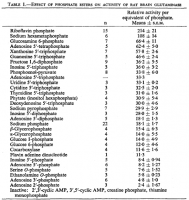Giraffe
Member
- Joined
- Jun 20, 2015
- Messages
- 3,730
Glutamic acid is part of all protein-cotaining foods.Parsifal said:https://raypeatforum.com/forums/posts/97862/ So does that mean that bone broth is bad as well due to the high L-glutamine content? :/
On German wikipedia is a little overview:
per 100 g food
Lebensmittel *** Gesamtprotein *** Glutaminsäure *** Anteil
food *** protein [g] *** glutamic acid [mg] *** (glutamic acid / protein) [%]
... worst is whole wheat flower.
https://de.wikipedia.org/wiki/Glutamins%C3%A4ure
You may also want to check high glutamate for glutamate antagonists.
Last edited by a moderator:

